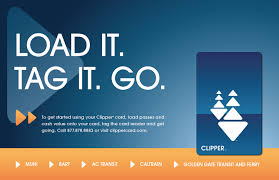APPLE DEVICES OPENING UP TO NEW USES
Peter Vroom, Convergence, Aug 20, 2017
Apple, What took you so Long?
Finally, Apple has announced plans to open up its mobile iOS operating system to near field communications (NFC) with the introduction of IOS 11 scheduled for this fall. Apple has used NFC technology for several years for its Apple Pay wireless payment system but it has not allowed access to its NFC architecture for outside iPhone software developers to use it for other purposes. For a company like Convergence, who has been among a handful of leaders in the development of NFC technology for events, this is BIG news. Our mobile apps produced for Google's competing Android operating system have utilized NFC technology since 2013 for things like CE tracking, registration, mobile event planners and lead retrieval. Now, for the first time, we can offer NFC across all mobile operating system platforms. The new operating system tweaks will open up access to the iPhone's existing NFC chip to more types of applications.
Apple's Decision Acknowledges NFC's Future Growth Expectations
It's likely no accident that Apple, which has long preferred to maintain a less open and more controlled approach to the use of its operating platform is now opening up to NFC technology, albeit slowly. Competitive pressures from Android, the operating platform used by the vast majority of smart phones, is certainly a factor. It's also a strong indicator that NFC is here to stay and can be expected to continue to play a larger role both in event technology and in our daily lives. With Apple's latest move, the vast majority of smart phone users will also have an NFC reader available to them at all times. Even the Apple Watch will be able to read an NFC tag.
What does this Mean for Event Technology?
We are inevitably going to see more event technology providers begin to acknowledge that the efficiencies and broad capabilities of NFC are very appealing to customers. QR code scanning will certainly not disappear overnight but a simple touch of an NFC card will beat the often awkward and time consuming experience of having to focus the smart phone camera to read the QR code. As an example, our QuickScan NFC-ready self-service stations dramatically streamline the registration process by allowing meeting attendees to quickly register and/or print their badge on-site with no hassle and no wait.
Continuity Across all Mobile Device Platforms
With its decision to open up its NFC chip to other uses, Apple can be expected to benefit going forward in the growth of sales of its mobile devices for commercial use. Until now, Convergence has used only Android tablets for its CE Tracking kiosks simply because we had no other option that offered NFC. Now we will have the ability to utilize iPads and as well. Unquestionably, the most important benefit by far is the ability to now serve all customers and meeting attendees with the same technology across all mobile device operating systems. The majority of our meeting attendees use IOS devices, so this will fill a significant void in continuity.
Europe Remains Way Ahead in its use of NFC Technology...
Likely as the result of its experience coordinating the integration of the European Union countries, Europe over the last 15 years has significantly developed and implemented the use of NFC technology for transit, banking, meetings, business applications, health care and many other uses. Similarly, Apple's decision on NFC could spur faster development here in the U.S. As an example, London's NFC-based Oyster card was first issued to the public in 2003 and today more than 90% of all journeys on public transport in London are made using the card. It is now valid for travel modes across London including London Underground, London Buses, the National Rail services, and river boat services.
...But We're Catching Up
San Francisco Bay Area Clipper Card
In the U.S., we are now seeing substantial growth in both commercial and consumer related usage for packaging, marketing, product labeling, medical data, authentication, gaming and event experiences, and much more. Now that software application developers and service providers can comfortably rely on most consumers having an NFC-capable mobile device, much more rapid development of NFC products and services can be expected.
Already, Clipper cards equipped with NFC antennas are in full use as all-in-one transit cards for the San Francisco Bay Area. The NFC card works on all transit systems, BART, buses, ferries, and even for bike rental and parking in some instances. And just like London's Oyster card, the Clipper card will hold cash value and you can add value to your card as you go.
Our app developers envision many more of those kinds of NFC productivity applications in the future resulting from Apple's adoption of the technology. So keep your eyes open for some big changes in this area, and thanks Apple -- it was about time!






